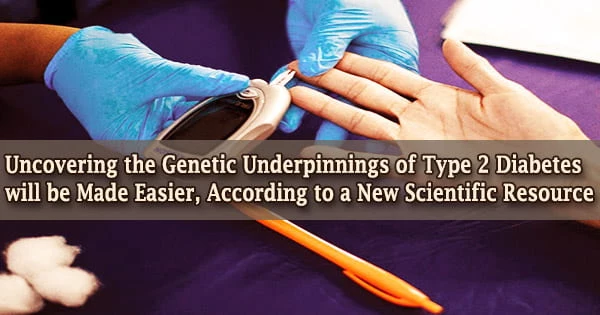Many human genome polymorphisms have been associated to type 2 diabetes, but it’s unclear how they cause illness because most aren’t found in genes that code for proteins. Type 2 diabetes is a frequent illness in which the blood sugar (glucose) level rises to dangerously high levels.
Now, an international collaboration, including Massachusetts General Hospital (MGH) experts, has created a website to aid in the discovery of the effect of these genetic polymorphisms. The findings, published in Cell Reports, are based on the understanding that type 2 diabetes is caused by abnormalities in groupings of pancreatic cells called islets, which manufacture and release hormones that regulate blood sugar levels.
This kind of diabetes is more common in people in their forties and fifties. It was previously known as adult-onset diabetes. Type 2 diabetes, on the other hand, affects children and teenagers, owing to childhood obesity.
Human islet samples, on the other hand, are extremely difficult to come by. To meet this challenge, scientists from Spain, Belgium, Italy, Sweden, Finland, the United Kingdom, and the United States collaborated to gather more than 500 human islet samples from patients with and without type 2 diabetes, as well as genomic and gene expression data. The researchers came up with the term TIGER after combining this data (for Translational human pancreatic Islet Genotype tissue-Expression Resource).
This resource will be very useful to identify genes that may be related with the genetic variants that we have found associated with type 2 diabetes.
Josep M. Mercader
The study necessitated gathering and analyzing a massive quantity of data, which was made possible by the use of supercomputers and innovative statistical methodologies.
TIGER analysis indicated that certain genetic polymorphisms in islets from type 2 diabetes patients influence the expression of certain genes. So far, 32 new genes have been discovered that may have a role in the development of type 2 diabetes.
“This resource will be very useful to identify genes that may be related with the genetic variants that we have found associated with type 2 diabetes,” says co-senior author Josep M. Mercader, PhD, a research-scientist at MGH’s Diabetes Unit and Center for Genomic Medicine.
“The first step in finding new therapeutic targets or better understanding the physiology of different forms of diabetes is to identify the gene responsible for a certain genetic connection.”
The TIGER online portal makes TIGER data publically available and accessible to the diabetic research community.
“We are proud that we are now able to share this wealth of data to the scientific community in an easily accessible way for all researchers in the type 2 diabetes field, without the need of computational or bioinformatic expertise,” says co-lead author Lorena Alonso, of the Barcelona Supercomputing Center, in Spain, one of the developers of the TIGER portal.
Ignasi Moran, PhD, of the Barcelona Supercomputing Center, and Anthony Piron, of the Université Libre de Bruxelles, are co-lead authors. Miriam Cnop, MD, PhD, of the Université Libre de Bruxelles, and David Torrents, PhD, of the Barcelona Supercomputing Center are co-senior authors.
Xavier Garcia-Hurtado, Mara Suleiman, Lorella Marselli, Jonathan L.S. Esguerra, Jean-Valéry Turatsinze, Jason M. Torres, Vibe Nylander, Ji Chen, Lena Eliasson, Matthieu Defrance, Ramon Amela, MAGIC, Hindrik Mulder, Anna L. Gloyn, MAGIC, Hindrik Mulder, Anna L. Gloy.
T2Dsystems, a Horizon 2020 research and innovation initiative of the European Union, financed this study under grant agreement number 667191.
















